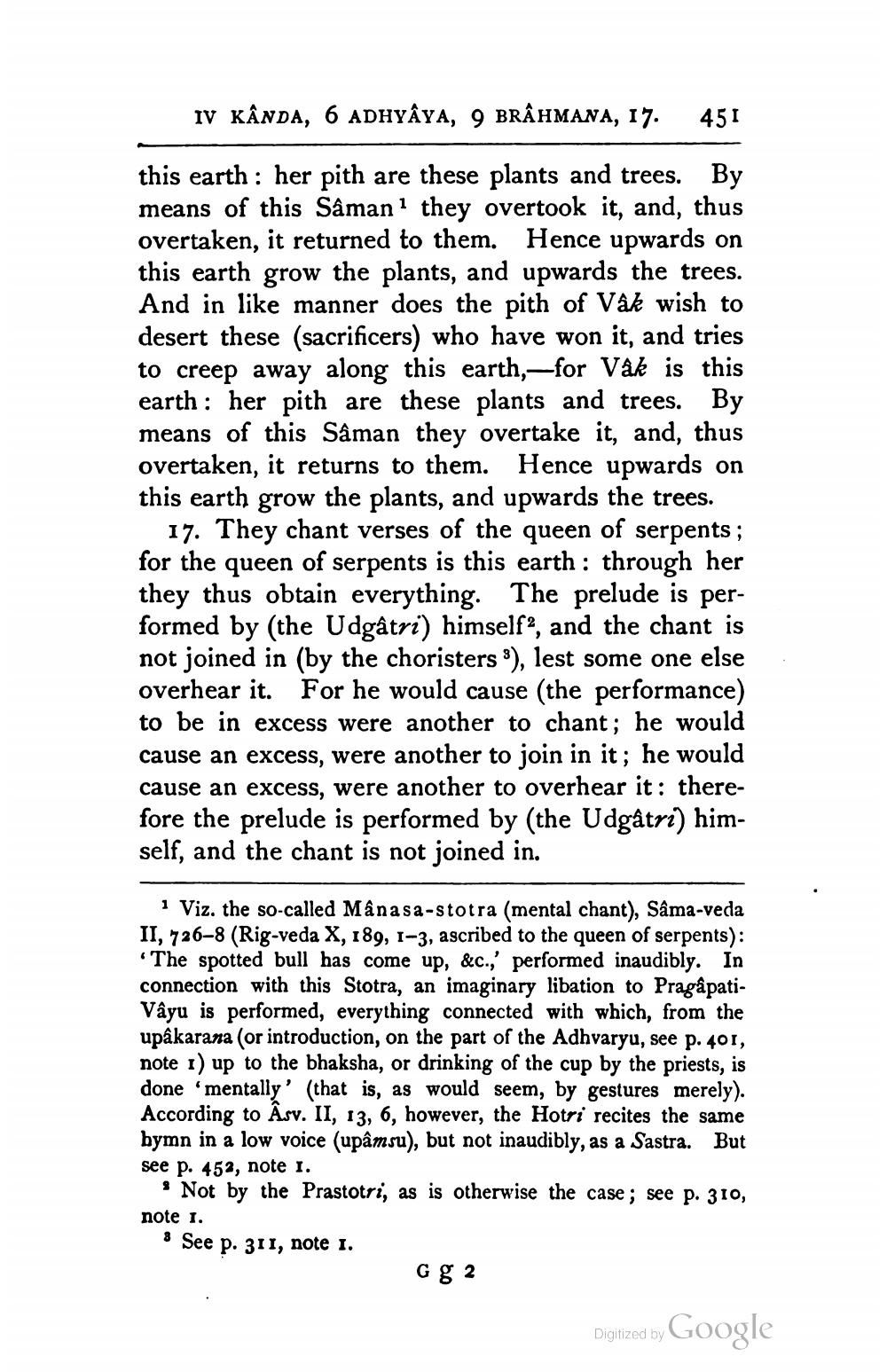________________
IV KÂNDA, 6 ADHYAYA, 9 BRÂHMANA, 17.
451
this earth : her pith are these plants and trees. By means of this Sâman1 they overtook it, and, thus overtaken, it returned to them. Hence upwards on this earth grow the plants, and upwards the trees. And in like manner does the pith of Vâk wish to desert these (sacrificers) who have won it, and tries to creep away along this earth, for Våk is this earth : her pith are these plants and trees. By means of this Sâman they overtake it, and, thus overtaken, it returns to them. Hence upwards on this earth grow the plants, and upwards the trees.
17. They chant verses of the queen of serpents ; for the queen of serpents is this earth : through her they thus obtain everything. The prelude is performed by (the Udgâtri) himself?, and the chant is not joined in (by the choristers :), lest some one else overhear it. For he would cause (the performance) to be in excess were another to chant; he would cause an excess, were another to join in it; he would cause an excess, were another to overhear it: therefore the prelude is performed by (the Udgâtri) himself, and the chant is not joined in.
1 Viz. the so-called Mânasa-stotra (mental chant), Sâma-veda II, 726–8 (Rig-veda X, 189, 1-3, ascribed to the queen of serpents):
The spotted bull has come up, &c.,' performed inaudibly. In connection with this Stotra, an imaginary liba Vâyu is performed, everything connected with which, from the upâkarana (or introduction, on the part of the Adhvaryu, see p. 401, note 1) up to the bhaksha, or drinking of the cup by the priests, is done 'mentally' (that is, as would seem, by gestures merely). According to Asv. II, 13, 6, however, the Hotri recites the same bymn in a low voice (upâmsu), but not inaudibly, as a Sastra. But see p. 452, note 1.
9 Not by the Prastotri, as is otherwise the case ; see p. 310, note 1. 3 See p. 311, note i.
G g 2
Digitized by Google




